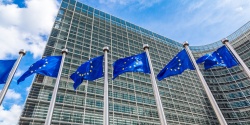Published: 20.06.2022

· The European Union aims to sign a new partnership agreement with the Organization of African, Caribbean and Pacific States - the ACP.
· In addition to the economic dimension, the agreement attempts to impose ideological content related to the undefined or hidden meaning of the concepts of "reproductive and sexual rights and health" or "gender".
· This is a sign of taking advantage of the economic dependence of the ACP countries on the European Union.
· The Ordo Iuris Institute has published a study on the subject.
The expertise concerns the practice of making EU development aid conditional on the beneficiaries' obligation to implement certain ideological trends and legal solutions. The reason for developing this topic was a new agreement between the EU and African, Caribbean and Pacific countries, the shaping of which the Ordo Iuris Institute follows and has been involved in the campaign from the very beginning to reject its harmful ideological provisions.
The nature of the cooperation between the EU and African, Caribbean and Pacific countries has gradually changed. Although it initially assumed economic cooperation, the Convention concluded in Lomé in 1975 also included political aspects such as: democracy, the rule of law, and strengthening the role of women in society. In the latest draft of the agreement, there was a clear attempt to impose ideological content related to the undefined or hidden meaning of the terms "reproductive and sexual rights and health" or "gender", which is inconsistent with the competences conferred on the Union, the content of the Treaties and undermines the image of the EU, putting it in a place a superpower striving for neo-colonial domination.
The European Union declares that it supports developing countries by promoting sustainable development and stability (Agenda 2030, New European Consensus on Development). Concepts such as "gender equality", "good governance" and "democracy, the rule of law and human rights" have become the key to imposing on third countries the support of specific trends, solutions and political goals.
The terms "reproductive and sexual health" and "reproductive rights" or "sexual rights" have been controversial in the international legal discourse for years. These terms do not have legal definitions and are in no way present, and even less so, defined in the legislation of the European Union. It results both from the lack of consensus among the member states regarding these structures, and above all, from the lack of competence of the European Union in shaping the health policy of the EU member states.
- In many areas of their activity and activity, the EU elites have for years been implementing postulates based on controversial theories, aimed at interfering not only with the legal orders of EU Member States and third countries, but also at a global cultural revolution. Only such a goal seems to explain the consistent actions in the field of "gender equality", gender unification or extending human rights using the "soft-law" method to such issues as abortion, undertaken even despite the opposition of the states against which this offensive is conducted. However, while in the situation of member states it can be considered an "internal" conflict, in the case of third countries and attempts to smuggle in, or impose the implementation of ideological issues in partnership agreements, it puts the European Union in the position of a superpower striving for neocolonial domination - notes Anna Kubacka , analyst at the Ordo Iuris Center for International Law.

09.05.2025
• Representatives of the Ordo Iuris Institute will participate in the Pan-African Conference on Family Values, which will begin on May 12 in Nairobi, the capital of Kenya. Ordo Iuris is a partner of the event.

07.05.2025
• The European Court of Human Rights has upheld a complaint by a same-sex couple whose Polish registry office refused to register a marriage contracted in the United Kingdom. This is the fourth judgment in which the ECHR indicates that Poland has an obligation to ensure that same-sex couples can formalize their cohabitation.

17.04.2025
• The Ordo Iuris Institute has prepared an opinion for the UN as part of a thematic report on surrogacy and its impact on the rights of women and children.

09.04.2025
• On April 8, the Ordo Iuris Institute presented the Polish version of a document with proposals for reforming the European Union, prepared jointly with Hungary’s Mathias Corvinus Collegium (MCC).